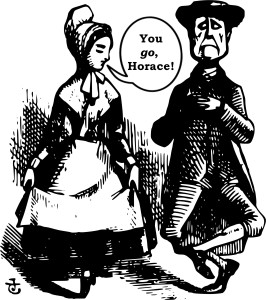 One thing that’s kind of fun, and kind of annoying, about being a writer is spotting slip-ups in traditionally published books.
One thing that’s kind of fun, and kind of annoying, about being a writer is spotting slip-ups in traditionally published books.
I’m currently reading a well-known trad-pubbed epic fantasy. This trilogy has garnered critical acclaim. It was optioned for a movie (although the option has run out). A video game has been set in the world of this series. The author was even hired to finish another author’s fantasy series after the original author of that series died. (Bonus points if you can name both authors.)
In short, people love these books. But I’ve found inconsistencies in the story. Continue reading “Watch Your Language: Write Out Those Inconsistencies”

 In an earlier post, I talked about how the ending — indeed, every part — must
In an earlier post, I talked about how the ending — indeed, every part — must 
